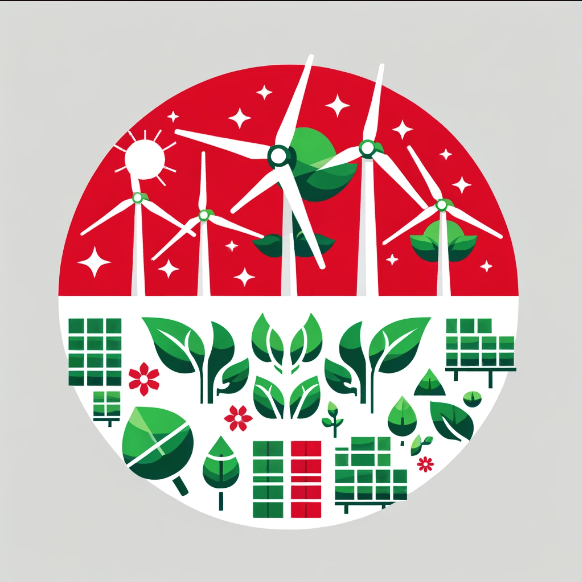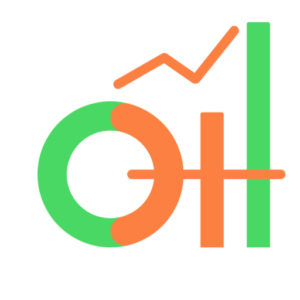Overview
Indonesia, the largest archipelago in the world, is a significant player in the global energy market, primarily due to its substantial natural resources, including oil, natural gas, coal, and renewable energy potential. The country is strategically positioned along major international shipping routes, making it a pivotal energy exporter, especially in the LNG (liquefied natural gas) sector. Indonesia’s energy sector is undergoing transformation, aiming to increase renewable energy use and reduce dependence on fossil fuels, in line with its commitment to the Paris Agreement.
Institutions and Energy Policy
- Ministry of Energy and Mineral Resources (MEMR): The primary government body responsible for energy policy formulation and implementation.
- National Energy Council (DEN): Provides guidance on policy direction and energy management strategies.
- Regulatory Framework: The country’s energy policy framework includes the National Energy Policy (KEN), aiming for a renewable energy share of 23% by 2025 in the national energy mix.
Energy Companies
- Pertamina: The state-owned oil and gas company, playing a dominant role in the country’s energy sector.
- PLN (Perusahaan Listrik Negara): The state electricity company, responsible for power generation and distribution.
- Renewable Energy Companies: Indonesia is home to numerous renewable energy companies focusing on solar, wind, geothermal, and hydroelectric power, capitalizing on the country’s vast renewable resources.
Energy Supply
- Oil and Gas: Indonesia has significant oil and gas reserves, although it has become a net importer of oil due to declining production and increasing domestic consumption.
- Coal: Indonesia is one of the world’s largest coal exporters, primarily supplying the Asian market.
- Renewable Energy: Rich in geothermal, hydro, solar, and wind energy potential. Indonesia is the world’s second-largest geothermal energy producer.
Energy Prices
Energy prices in Indonesia are influenced by global market trends, government subsidies, and domestic production levels. The government has implemented subsidies for various fuels and electricity to manage prices for consumers, although there has been a gradual move towards rationalizing these subsidies to reflect market prices better and promote energy efficiency.
Energy Consumption
Indonesia’s energy consumption is characterized by a high reliance on fossil fuels, with coal and oil dominating the energy mix. However, there is a growing emphasis on diversifying the energy mix through increased use of renewable energy sources to meet rising energy demand while addressing environmental concerns.
Issues and Prospects
- Transition to Renewables: The main challenge lies in balancing economic growth with the transition to renewable energy, requiring significant investment in infrastructure and technology.
- Energy Access: Ensuring equitable energy access across the archipelago remains a critical issue, given the geographic challenges.
- Environmental Impact: Addressing the environmental impact of energy production, particularly from coal, is crucial for sustainable development.
Future Outlook
Indonesia’s energy sector is poised for transformation, with significant opportunities in renewable energy development, particularly in solar, wind, and geothermal energy. The government’s commitment to the Paris Agreement and the global shift towards cleaner energy sources are expected to drive policy and investment in the coming years, making Indonesia a key market to watch in the Asia-Pacific region.
Recent Updates
Indonesia’s energy sector has seen significant developments recently, focusing on accelerating renewable energy capacity and embracing cleaner energy initiatives. Here are some key updates:
- Expansion of Renewable Capacity: Indonesia’s state utility, Perusahaan Listrik Negara (PLN), has announced plans to build an additional 31.6 gigawatts (GW) of renewable power capacity between 2024 and 2033. This capacity expansion is intended to account for 75% of the additional generation for the period, with the remaining capacity expected to come from gas power plants. This move is part of Indonesia’s broader strategy to reach net-zero emissions before 2060, reflecting a shift towards cleaner energy sources without an accelerated shutdown of coal-fired power plants. Instead, there’s a focus on a “coal phase-down,” with most coal power plants remaining operational until the end of their contracts, while carbon capture and storage technology will be implemented once it becomes available.
- Just Energy Transition Partnership (JETP): A significant milestone in Indonesia’s energy transition efforts is the launch of the Joint Office for Power Sector Transition. This initiative, launched in collaboration with the National Energy Transition Task Force and PLN, aims to advance the implementation of energy transition in the power sector, in alignment with Indonesia’s goals to achieve net zero by 2060 or sooner. This collaboration is a part of the Just Energy Transition Partnership (JETP), which saw the Government of Indonesia and international partners pledge a landmark $20 billion financing package for energy transition, the largest of its kind globally.
- $20 Billion Renewable Energy Investment Plan: Indonesia has launched a $20 billion investment plan, supported by global lenders led by the United States and Japan, to accelerate the decarbonization of its power sector. This plan, known as the Comprehensive Investment and Policy Plan (CIPP), aims to reduce carbon dioxide emissions to 250 million metric tonnes for its on-grid power sector by 2030, a significant cut from estimated business-as-usual emissions of over 350 million. The plan targets increasing the portion of renewable energy in power generation to 44% by 2030, up from around 12% in 2022. This aggressive timeline highlights Indonesia’s commitment to transitioning to renewable energy and reducing its greenhouse gas emissions as one of the world’s largest emitters.
These updates underscore Indonesia’s strategic efforts to transition towards a more sustainable and cleaner energy future, with significant investments and collaborations aimed at enhancing the renewable energy sector and reducing dependency on fossil fuels.







